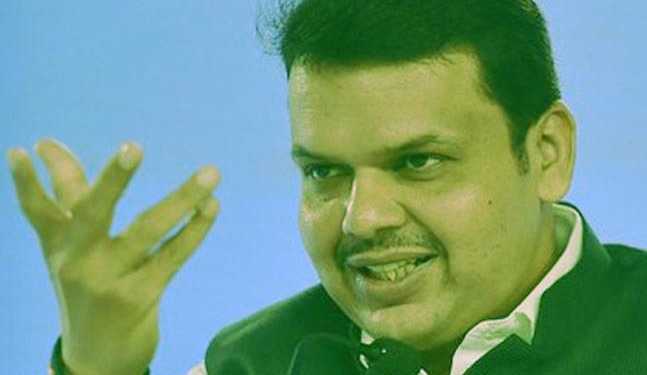On 23rd Feb as the results began to trickle in, one thing was absolutely clear that Mumbai has decided to take a sharp right turn. Early trends suggested that CM Fadnavis might have to lose his chair. The Shiv Sena cadre was on roads with saffron flags flying high and that jubilant look of having tamed the opponent. Till noon it did seem as if CM Fadnavis had underestimated the ground strength of Shiv Sena. Early trends suggested as if CM Fadnavis had committed a political hara-kiri by challenging the tiger in his own town.
Objective and unbiased analysis of the BMC Polls reinforces 2 political realities across India. One, Congress has failed to reinvigorate itself and public is in no mood to forgive Congress for UPA disasters. Second, BJP can win only if it can present itself with credible local leadership. BJP’s loss in Bihar and win in Assam and now Maharashtra local body polls prove the theory of ‘no win without local strong leadership.’
Amongst BJP and Shiv Sena, they share a total of 166 seats out of 227 in Mumbai, a staggering 73% seats. BJP contested less than 200 seats and won 82 seats. In seat-sharing talks with Shiv Sena, BJP was offered 60 seats to contest. This only implies that Shiv Sena didn’t want to accept the fact that its political clout has diminished and it was standing on a shaky ground.
But the biggest takeaway is the way CM Fadnavis decided to tackle the bull by the horn and converted this BMC election into a referendum of his state government. His ways remind us of what CM Modi used to do in Gujarat.
Entire Fadnavis campaign was an astute political message centred on transparency, development and constantly invoking Chhatrapati Shivaji Maharaj. This win is a textbook case of strategy executed to perfection. But the better part of this campaign was overall absence of obvious Marathi VS Gujarati polarization. But ward-wise analysis does suggest that Shiv Sena did sweep Marathi dominated areas and BJP swept Gujarati dominated areas. However, to the credit of both BJP and Shiv Sena, neither of the two openly invoked identity-based politics.
Maharashtra and especially Mumbai is one of the very few state with the exception of Tamilnadu where the ruling and the opposition spaces are occupied by parties belonging to the same political spectrum. BJP-Shiv Sena bickering is more about political space rather than ideological differences. It’s a fight for same political space rather than clash of ideas. Shiv Sena will have to find some feisty leadership to take on the duo of Narendra-Devendra. But this election has also established the underlying Shakha strength of Shiv Sena. Though BJP had much more resources to fight but the door-to-door strength of Shiv Sena cannot be underestimated. It also implies that demonetization has had minimal impact on voting and if it all it had then it’s a validation of demonetization.
CM Fadnavis has definitely expanded his and BJP’s footprint across Maharashtra. CM Fadnavis has emerged from a relative lightweight, picked up by Central Leadership to an astute regional satrap. He is the first CM to emerge as a heavyweight under the watch of Modi-Shah duo. CM Fadnavis has had the last laugh in this battle but the fight for Mumbai is far from over. In a way, BJP-Shiv Sena fight is a friendly and healthy fight where the best aspects of right-wing ideology will ultimately emerge.
Most importantly, for now Maharashtra and especially Mumbai has an effective, politically astute CM and it can safely be considered a Saffron bastion as of now.





























